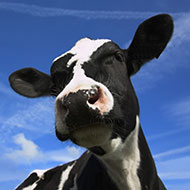
Event will be held at the annual World Buiatrics Congress
Applications are now open for the biennial Ruminant Well-Being Awards, held by Boehringer Ingelheim in partnership with the World Association for Buiatrics.
The event will be held at the annual World Buiatrics Congress, which highlights the importance of vets in the continuous improvement of animal welfare for food-producing ruminants.
The next congress is due to take place in Madrid, Spain (September 27 to October 1, 2020). Applications will be accepted to two different awards: the Ruminant Well-Being Research Award and the Ruminant Well-Being Achievement Award.
The Ruminant Well-Being Research Award will be granted to a recent PhD graduate in veterinary science, animal science or related disciplines that made an exceptional contribution to the scientific knowledge on ruminant wellbeing.
The recipient will have achieved either some or the following:
- improving the understanding of pain expression as well as the recognition of pain and other forms of suffering
- developing scientific methods of measuring animal wellbeing, with potential practical applications
- developing scientific-based strategies that improve animal wellbeing
- identifying issues of concern and seeking solutions to challenges
- developing methods to change human attitudes and behaviour to ensure proper stewardship.
The Ruminant Well-Being Achievement Award will be granted to a practising veterinary surgeon or a researcher in veterinary science, animal science or related disciplines to recognise his/her achievements in advancing the wellbeing of ruminants.
It rewards an individual that has contributed to the wellbeing of food-producing ruminants by achieving some of the following:
- improving the understanding of pain expression as well as the recognition of pain and other forms of suffering
- developing scientific methods of measuring animal wellbeing
- developing practical wellbeing assessment methods
- developing practical strategies to improve animal wellbeing
- raising awareness of issues of concern; engaging different stakeholders in seeking solutions to challenges
- changing human attitudes and behaviour to ensure proper stewardship
- communicating information about, and proposing solutions to, animal well-being challenges with courage and integrity.
An independent panel of experts will select the winner under the supervision of Xavier Manteca, a professor in applied ethology at the University of Barcelona and founder of the Farm Animal Welfare Education Centre.
Applications will be accepted until April 30, 2020. For the criteria and application forms, please visit farmanimalwellbeing.com



 The veterinary mental health charity Vetlife is inviting the veterinary community to join it for a sponsored cold-water dip.
The veterinary mental health charity Vetlife is inviting the veterinary community to join it for a sponsored cold-water dip.